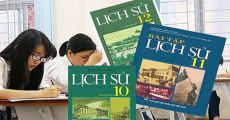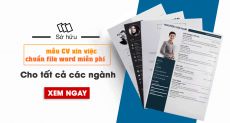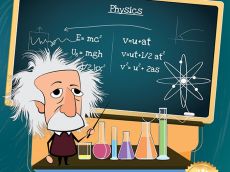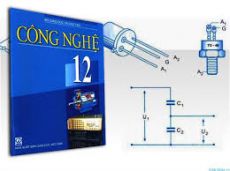Đề thi giữa HK1 môn Tiếng Anh 12 năm 2022-2023
Trường THPT Cao Bá Quát
-
Choose A, B, C or D to indicate the sentence that is similar in meaning to the one given
Câu 1:
The best way to make them work hard is to promise them reward.
A. Promise them a reward and they will work hard.
B. If you promise to reward, they will word hard.
C. Reward them and make them work hard.
D. If they work hard, you should promise to reward them.
-
Câu 2:
It doesn’t matter how much you offer to pay, he won’t sell the antique vase.
A. Although you offer to pay him a lot, he won’t sell the antique vase.
B. Despite a lot of money you offer to pay, he won’t sell the antique vase.
C. He won’t sell the antique vase if you offer to pay him a lot of money.
D. However much you offer to pay, he won’t sell the antique vase.
-
Câu 3:
I am not certain, but there may be about twenty applicants for the job.
A. I am not sure if there are about twenty applicants for the job.
B. At a guess, there are about twenty applicants for the job.
C. I guess that there are twenty applicants for the job.
D. Twenty people are guessed to have applied for the job.
-
Câu 4:
I bought an Italian pair of shoes for $150. They went missing after two days.
A. I bought an Italian pair of shoes that went missing after two days.
B. The Italian pair of shoes that I bought for $150 went missing after two days.
C. The Italian pair of shoes, which I had bought for $150, went missing after two days.
D. My Italian pair of shoes that went missing after two days were bought for 150$.
-
Câu 5:
Ann paints landscape pictures. She finds it very pleasant.
A. Ann finds it pleasure to paint landscape pictures.
B. Ann takes great pleasure in painting landscape pictures.
C. Painting landscape pictures makes Ann feel pleasure.
D. Ann feels pleasant in painting landscape pictures.
-
Choose A, B, C or D to indicate the word that is OPPOSITE in meaning to the underlined part in each of the following questions
Câu 6:
Choose the word that is OPPOSITE in meaning to the underlined part: Mr. Smith’s new neighbors appear to be very friendly.
A. inapplicable
B. hostile
C. amiable
D. futile
-
Câu 7:
Choose the word that is OPPOSITE in meaning to the underlined part: Henry has found a temporary job in a factory.
A. genuine
B. eternal
C. permanent
D. satisfactory
-
Choose A, B ,C or D to indicate the word that is CLOSEST in meaning to the underlined part in each sentence
Câu 8:
Choose the word that is CLOSEST in meaning to the underlined part: Carpets from countries such as Persia and Afghanistan often fetch high prices in the United States.
A. Artifacts
B. Textile
C. Pottery
D. Rugs
-
Câu 9:
Choose the word that is CLOSEST in meaning to the underlined part: Though many scientific breakthroughs have resulted from mishaps it has taken brilliant thinkers to recognize their potential.
A. incidental
B. misunderstandings
C. accidents
D. misfortunes
-
Read the following passage and choose A, B, C or D to indicate the correct answer to each of the questions
If we believe that clothing has to do with covering the body, and costume with the choice of a particular form of garment for a particular use, then we can say that clothing depend primarily on such physical conditions as climate, health, and textile manufacture, whereas costume reflect social factors such as religious beliefs, aesthetics, personal status, and the wish to be distinguished from or to emulate our fellows.
The ancient Greeks and the Chinese believed that we first covered our bodies for some physical reason such as protecting ourselves from the weather elements. Ethnologists and psychologists have invoked psychological reasons: modesty in the case of ancients, and taboo, magical influence and the desire to please for the moderns.
In early history, costume must have fulfilled a function beyond that of simple utility, perhaps through some magical significance, investing primitive man with the attributes of other creatures. Ornaments identified the wearer with animals, gods, heroes or other men. This identification remains symbolic in more sophisticated societies. We should bear in mind that the theater has its distant origins in sacred performances, and in all period children at play have worn disguises, so as to adapt gradually to adult life.
Costume helped inspire fear or impose authority. For a chieftain, costume embodied attributes expressing his power, while a warrior’s costume enhanced his physical superiority and suggested he was superhuman. In more recent times, professional or administrative costume has been devised to distinguish the wearer and express personal or delegated authority; this purpose is seen clearly in the judge’s robes and the police officer’s uniform. Costume denotes power, and since power is usually equated with wealth, costume came to be an expression of social caste and material prosperity. Military uniform denotes rank and is intended to intimidate, to protect the body and to express membership in a group. At the bottom of the scale, there are such compulsory costumes as the convict’s uniform. Finally, costume can possess a religious significance that combines various elements: an actual or symbolic identification with a god, the desire to express this in earthly life, and the desire to enhance the wearer’s position of respect.
Câu 10:
Psychological reasons for wearing garments include _________.
A. protection from cold
B. availability of materials
C. prevention of illness
D. wishing to give pleasure
-
Câu 11:
Why does the author mention the police officer’s uniform?
A. To illustrate the aesthetic function of costume
B. To identify the wearer with a hero
C. To suggest that police are superhuman
D. To show how costume signifies authority
-
Câu 12:
The passage mainly discusses costumes in term of its ________.
A. physical protection
B. religious significance
C. social function
D. beauty and attractiveness
-
Câu 13:
What is the purpose of the paragraph 1?
A. To describe the uses of costume
B. To contrast costume with the clothing
C. To trade the origins of costume
D. To point out that clothing developed before costume
-
Câu 14:
The word “scale” in line 23 refers to ___________.
A. symbolic identification
B. military rank
C. social position
D. the balance
-
Câu 15:
Which of the following would most likely NOT be reflected in a person’s costume, as it is defined in the passage?
A. Having a heart condition
B. Playing in a baseball game
C. Working in a hospital
D. Participating in a religious ceremony
-
Câu 16:
It can be inferred from paragraph 3 that ________.
A. The function of costume has become very sophisticated
B. Children like to identify with other creature by wearing costumes
C. Primitive people wore cloths only for sacred performances
D. Costume no longer fulfills a function beyond simple utility
-
Read the following passage and mark the letter A, B, C, or D on your answer sheet to indicate the correct work for each of the blanks
During the last 400 years, most scientists have (17) ________ on mathematics in their development of their inventions or discoveries. However, one great British scientist, Michael Faraday, did not make (18) __________ of mathematics. Faraday, the son of a poor blacksmith, was born in London in 1791 and had no (19) _________ beyond reading and writing.
In 1812 Faraday was hired as a bottle washer by the great chemist Humphry Davy. Later, Faraday became a greater scientist than Davy, making the last years of Davy's life embittered (20) __________ jealousy. Faraday made the first (21) __________ motor in 1821, a device that used electricity to produce movement.
Câu 17:
(17) _________
A. relied
B. insisted
C. based
D. elaborated
-
Câu 18:
(18) _________
A. usage
B. advantage
C. use
D. utilization
-
Câu 19:
(19) _________
A. instruction
B. knowledge
C. training
D. schooling
-
Câu 20:
(20) _________
A. from
B. with
C. by
D. at
-
Câu 21:
(21) _________
A. electric
B. electrical
C. electricity
D. electrician's
-
Mark the letter A, B, C, or D on your answer sheet to indicate the word whose underlined part differs from the other three in pronunciation in each of the following questions
Câu 22:
Choose the word whose underlined part differs from the other three in pronunciation: travelled, behaved, practised, combined
A. travelled
B. behaved
C. practised
D. combined
-
Câu 23:
Choose the word whose underlined part differs from the other three in pronunciation: leave, teach, speak, learn
A. leave
B. teach
C. speak
D. learn
-
Câu 24:
Choose the word whose underlined part differs from the other three in pronunciation: laughs, drops, maintains, imports
A. laughs
B. drops
C. maintains
D. imports
-
Mark the letter A, B, C, or D to indicate the word that differs from the other three in the position of primary stress in each of the following questions
Câu 25:
Choose the word that differs from the other three in the position of primary stress: recipe, candidate, instrument, commitment
A. recipe
B. candidate
C. instrument
D. commitment
-
Câu 26:
Choose the word that differs from the other three in the position of primary stress: conceal, contain, conserve, conquer
A. conceal
B. contain
C. conserve
D. conquer
-
Câu 27:
Choose the word that differs from the other three in the position of primary stress: advantageous, oceanic, compulsory, influential
A. advantageous
B. oceanic
C. compulsory
D. influential
-
Choose A, B, C or D to indicate the correct answer to each of the following questions
Câu 28:
Drinking water _________ excessive amounts of fluorides may leave a stained or mottled effect on the enamel of teeth.
A. containing
B. including
C. made up of
D. composed of
-
Câu 29:
She gave me a ________ box.
A. small square jewellery metal
B. small metal square jewellery
C. small square metal jewellery
D. small jewellery square metal
-
Câu 30:
Ben: Our team has just won the last football match.
Ann: __________
A. Good idea. Thanks for the news.
B. Yes. I guess it’s very good.
C. Well, that’s very surprising!
D. Well, that’s very surprising!
-
Câu 31:
She pays an enormous insurance premium on the family heirloom, her most _______ possession.
A. worthless
B. valueless
C. honourable
D. treasured
-
Câu 32:
She __________ her success to hard work.
A. described
B. devoted
C. blamed
D. ascribed
-
Câu 33:
I refuse to believe a word of it; it’s a cock-and-___________ story.
A. hen
B. goose
C. bull
D. duck
-
Câu 34:
________, I decided to stop trading with them.
A. Despite of the fact that they were the biggest dealer
B. Though being the biggest dealer
C. Being the biggest dealer
D. Even though they were the biggest dealer
-
Câu 35:
When Mr Spendthrift ran out of money, he _______ his mother for help.
A. fell back on
B. fell upon
C. fell behind
D. fell in with
-
Câu 36:
It’s funny you should say that. I’ve just had the ______ thought.
A. like
B. identical
C. alike
D. similar
-
Câu 37:
Newspaper publishers in the States have estimated _______ reads a newspaper every day.
A. nearly 80 percentage of the adult population who
B. it is nearly 80 percent of the adult population
C. that nearly 80 percentage of the adult population
D. that nearly 80 percent of the adult population
-
Câu 38:
Ann: ________
Ben: Thanks. I will write to you when I come to London.
A. God bless you!
B. Have a nice trip!
C. Better luck next time!
D. Have a go!
-
Câu 39:
The dead man’s widow said he had had a/an ________ that he would be killed in an accident.
A. knowledge
B. experience
C. presentiment
D. warning
-
Câu 40:
Never _________ him stand on the deserted station platform.
A. will I forget to see
B. I will forget to see
C. will I forget seeing
D. I will forget seeing














